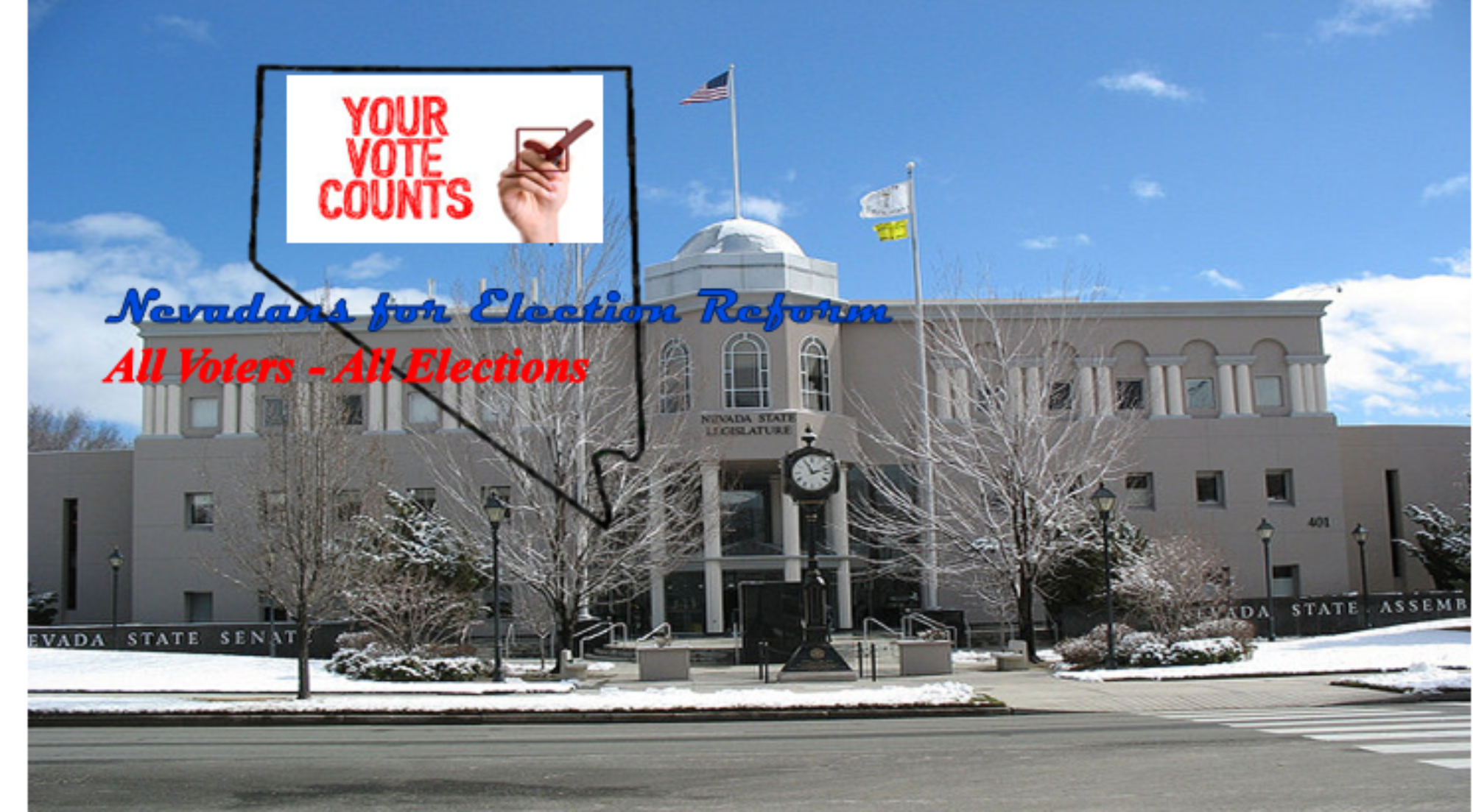Approximately 41 percent of eligible voters in Nevada are not registered to vote. Of the 59 percent who are, less than 46 percentvoted in the general election of November, 2014. Or to put it bluntly, 73 percent of eligible voters in Nevada just didn’t care.1
Eligible voters do not register to vote, or do not vote if they are, for basically the same reasons, mostly no interest or lack of time. Missing the registration deadline or not knowing where or how to register are also major reasons for not registering followed closely by lack of knowledge about the candidates or issues, lack of confidence in government, and voting doesn’t make a difference.
In an attempt to fix low voter registration, states are starting to consider automatically registering eligible voters when they apply for a driver’s license or state identification card. The governors of Oregon and California signed bills in 2015 implementing such a system. Similar bills are pending in 25 states and the District of Columbia. The concept of automatic voter registration (AVR) initially had bipartisan support. However, with the increased partisan rhetoric of the presidential campaigns, support is now aligning along party lines, Democrats in favor and Republicans opposed.
I’ve heard that in keeping with their Nevada Blueprint, Democratic lawmakers in the Silver State plan on filing a bill draft request (BDR) for the 2017 Nevada legislative session seeking to bring AVR to the state. But will automatically registering a person to vote get that person to actually vote or will the impact of AVR be simply to decrease election turnout rates?
For those who fail to register to vote because they missed the deadline or did not know where or how to register, automatic voter registration will resolve their issue, provided they apply for or renew a driver’s license or state identification card. But what about the remaining 75 percent of eligible voters not registered to vote?
Simply being registered to vote will not convince the person who didn’t register because they were not interested, didn’t want to take time to learn about the candidates or issues, have lost confidence in government, or don’t think their vote matters, to vote. Opponents of AVR stress voting is a personal responsibility. I believe these reasons for not registering support their argument. However, if those voters’ interest were piqued, if they saw government return to being an institution that embraced respectful disagreement and worked towards collaborative consensus, if they were given a reason to learn about the candidates and issues, and saw that their vote did matter, would the likelihood of them becoming active voters increase? The Nevada Election Modernization and Reform Act for 2017 (NEMRA – 2017) is a means to make the answer, “yes”.
The current hyper-partisan political environment has turned people off not only to the political parties but to the entire process. A single election held in November using Ranked Choice / Instant Runoff Voting (RCV / IRV) as proposed in NEMRA – 2017 can help reverse this trend. RCV / IRV forces candidates to reach out to a more diverse electorate. Appealing simply to the small party base is no longer a clear path to election. Second-choice votes could be the difference between winning and losing. Voters exposed to RCV / IRV elections have noticed a decrease in the negative tone of campaigns.
The goal of those who support AVR is to remove roadblocks to voting allowing more eligible voters to go to the polls. The goal of RCV / IRV is to return civility to the election and governing process and increase voter participation in elections. These goals are mutually supportive to the benefit of all. Question to Nevada legislators; companion bills?
1, Based on best available data from U.S. Census compared to current Nevada voter registration statistics.

Thanks for informing us , it will very helpful as user point of view. Please keep sharing for the beneficial knowledge of users.
Indelible Ink Suppliers | Voting Booths
Thx for reading and good cmt
Thx for reading and good cmt